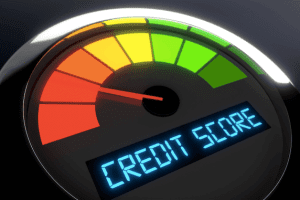There are certain practises that can damage your credit score. This includes late payments, high credit card balances and errors on your credit report to name a few.
Your credit score is a crucial financial metric that reflects your creditworthiness and plays a significant role in determining your ability to secure loans, mortgages, credit cards and favorable interest rates. A higher credit score signifies responsible financial behavior and makes it easier to access credit and better terms. Conversely, a lower credit score can restrict your financial opportunities and lead to higher borrowing costs.
In this comprehensive guide, Dollar Hand explores the various factors that can damage your credit score. We will also provide insights into how you can protect and improve your rating, with examples of how to fix a damaged credit score.

Things That Can Damage Your Credit Score
Late Payments And Delinquencies
One of the most significant factors that can damage your credit score is consistently making late payments on your bills and credit accounts. Payment history accounts for a substantial portion of your credit score. Late payments, even if just a few days overdue, can lower your score significantly.
Delinquent accounts, those that are significantly overdue, have an even more adverse effect. To mitigate this, set up reminders or automatic payments to ensure your bills are paid on time.
High Credit Card Balances
Credit utilization, the ratio of your credit card balances to your credit limits, is another critical factor influencing your credit score. Carrying high balances on your credit cards can indicate financial strain and negatively impact your score.
Aim to keep your credit utilization below 30% to maintain a healthy credit score. Paying down your credit card balances regularly can have a positive effect on your credit utilization and overall credit score.
Opening Too Many New Accounts
Each time you apply for a new credit account, a hard inquiry is made on your credit report. Too many hard inquiries within a short period can signal that you are seeking credit aggressively, which can lower your credit score.
Additionally, opening several new accounts can reduce the average age of your credit history, which also affects your credit score. Be strategic about applying for new credit and only do so when necessary.
Closing Old Accounts
The length of your credit history is important for calculating your credit score. Closing old accounts can shorten your credit history, which may lower your score. It is generally a good idea to keep your oldest accounts open, even if you’re not using them regularly, to maintain a longer credit history.
Defaulting On Loans
Defaulting on a loan, such as a personal loan, auto loan or mortgage, can significantly damage your credit score. Defaults indicate that you have failed to fulfill your financial obligations, making lenders wary of extending credit to you in the future. If you’re facing financial difficulties, it’s better to communicate with your lenders and explore options like loan modifications or deferments to avoid default.
Bankruptcy And Foreclosure
Bankruptcy and foreclosure are severe financial events that can have a long-lasting impact on your credit score. Bankruptcy stays on your credit report for several years and can lead to a substantial score decrease.
Similarly, a foreclosure can negatively affect your credit for years to come. This occurs when you fail to make mortgage payments and the lender repossesses your home.
Collections And Charge-Offs
Unpaid debts that are sent to collections or charged off by the creditor can significantly harm your credit score. These negative marks indicate a failure to repay debts as agreed and can stay on your credit report for up to seven years. It’s essential to address these issues promptly by negotiating with creditors or debt collectors and working out a repayment plan.
Cosigning For Someone With Poor Credit
Cosigning a loan can have a direct impact on your credit score if the primary borrower has poor credit. This is because if the main borrower defaults on the loan, you are equally responsible for repayment.
If the borrower misses payments or defaults, your credit score can suffer as well. Before cosigning, carefully consider the potential risks and only do so if you’re confident in the borrower’s ability to repay.

Inaccurate Information On Your Credit Report
Errors on your credit report, such as accounts that do not belong to you, incorrect payment statuses or inaccurate personal information, can damage your credit score. Regularly reviewing your credit report and disputing any inaccuracies is essential for maintaining an accurate credit history. A sample letter template on how to do this is shown by the Consumer Financial Protection Bureau here.
You should also get in touch with the lender or debt collector who provided the incorrect information to the credit bureau. After this, you should request an updated copy of your credit report to make sure that the error has been removed and your history has been corrected as resolving these issues can significantly improve your credit score.
Concluding Thoughts
Your credit score plays a pivotal role in your financial journey, impacting your ability to secure loans, credit cards and favorable interest rates. Avoiding the factors that can damage your credit score is essential for maintaining financial stability and access to credit.
By paying your bills on time, managing your credit utilization, being cautious with new credit applications and addressing any negative marks on your credit report promptly, you can safeguard and improve your creditworthiness. Regularly monitoring your credit report, staying informed about your credit rights and practicing responsible financial habits are vital steps toward achieving and maintaining a healthy credit score.
Was this article helpful?
Justine is a full-time writer with lots of expertise and a wealth of experience in the financial world. In particular, she specializes in household income and consumer finance across the United States. Follow her articles for useful advice and top tips, guides on how to save money and lots more.
